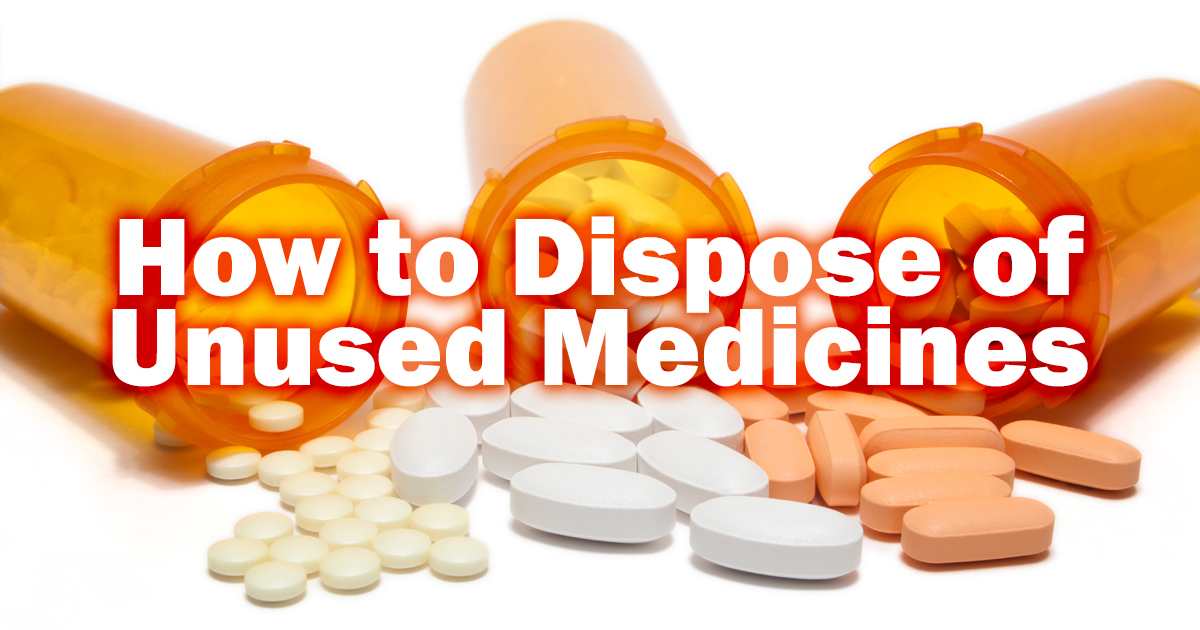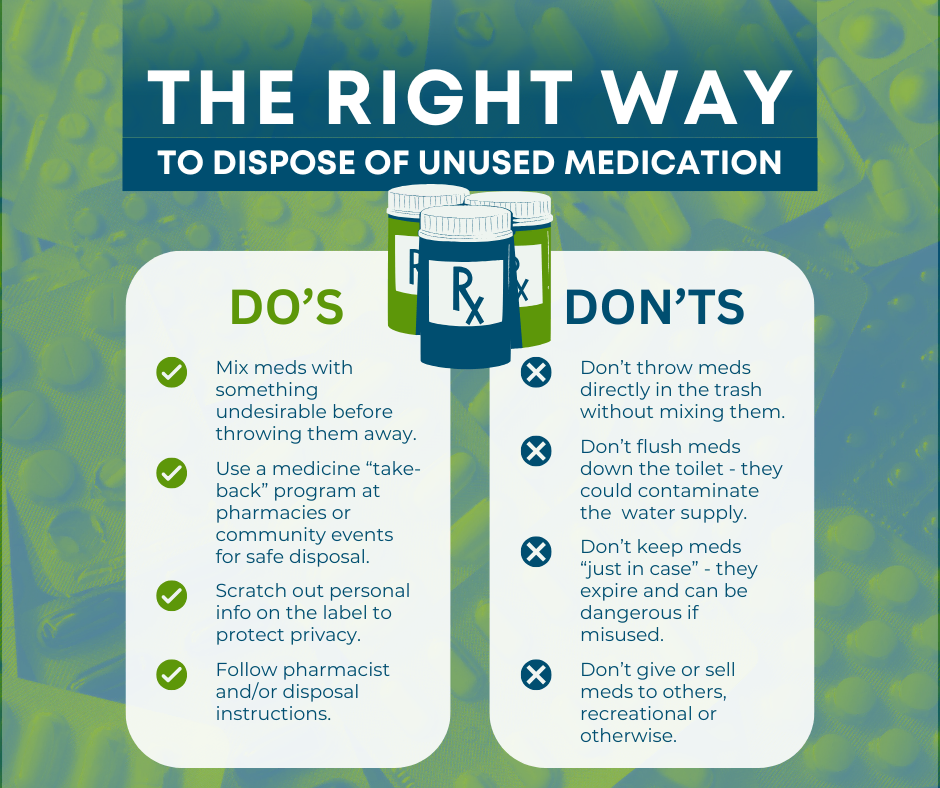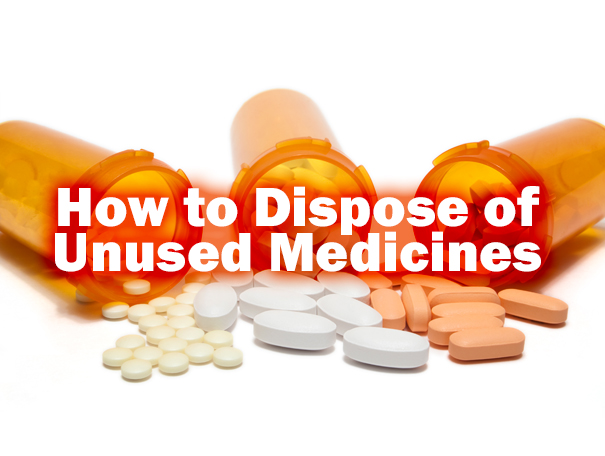 Occasionally, patients finish taking a medication without taking all the prescribed doses. In some cases, a physician may prescribe a medication on an as-needed basis. In others, the patient may fail to take all the prescribed doses for any number of reasons. Regardless of the situation, many people don’t know how to properly dispose of medications. This is your guide to disposing of unused medication in a safe and approved way.
Occasionally, patients finish taking a medication without taking all the prescribed doses. In some cases, a physician may prescribe a medication on an as-needed basis. In others, the patient may fail to take all the prescribed doses for any number of reasons. Regardless of the situation, many people don’t know how to properly dispose of medications. This is your guide to disposing of unused medication in a safe and approved way.
The Right Way To Take Medication
In most cases, physicians prescribe the minimum doses needed to treat a medical condition. If a physician, pharmacist, or medication documentation encourages you to take the full recommended regimen, follow the instructions to the best of your ability. Unfortunately, many people fail to take their prescription medications as directed. Instead, they stop taking the medication without calling the doctor’s office or talking to a pharmacist.
After a surgery or accident, physicians may prescribe a painkiller on an as-needed basis. Those who take fewer than the recommended number of pain relievers can decrease their risk of medication dependence. In these cases, stopping a medication may make more sense than consuming the entire bottle. However, patients should consider appropriate methods of disposal instead of holding onto a bottle after the recommended prescription period.
How NOT To Dispose Of Medication
When you find an old bottle of prescription medication, don’t:
- Give the meds to someone else who describes the same symptoms you experienced
- Sell them
- Give them away for recreational drug use
- Use them yourself for recreational drug use
- Keep them on hand “just in case” (prescriptions do go bad over time, and you should always take controlled substances under the guidance of a physician)
- Dump them down the drain or toilet (dissolved prescriptions can leech into the groundwater and contaminate ecosystems)
- Throw highly addictive medication into household garbage
- Try to send them back to the manufacturer (manufacturers can’t accept used medications for recycling or disposal)
- Leave unused medications in your cabinet, particularly if they’re potentially addictive
These methods of disposal can have long-reaching effects on other individuals, yourself, or the environment. If you aren’t sure how to dispose of unused medication, do some additional research using Google or ask your pharmacist for guidance.

How To Properly Use And Dispose Of Unused Medication
If you have any questions about the appropriate way to use, store, or dispose of a medication, contact your physician or a pharmacist. Prescription drugs may seem like a routine part of life, but handling them appropriately is critically important. Use these tips to properly use and dispose of unused medication:
- Don’t move medications to different containers. The bottle/box has relevant information about dosing, side effects, and expiration dates. The bottle also protects certain medications from sun and moisture damage.
- Read through prescription medication material. Ask questions at the physician’s office and at the pharmacy. Take the medication as prescribed and for as long as your physician directs. Pay close attention to any specific disposal directions.
- Watch the expiration dates. Don’t take any medicine past its expiration date. Unlike food, medications can change after these important dates and may not provide the same effects or the same level of safety.
- Always scratch out identifying information. Remove the label or scratch out any information on a medication bottle to protect your privacy and prevent others from identifying the type of medication you took.
- Dispose of medications in an appropriate location:
- You can dispose of prescriptions in household garbage if you mix it with something undesirable such as used kitty litter, coffee grounds, or old soup. Avoid using this method for highly addictive substances.
- If available, take to a local “take-back” program. Locate a local program using the following resources:
- American Medicine Chest This site offers an interactive map with local take-back sites.
- World Medical Relief. This organization collects, evaluates, and redistributes unused medications to those in need around the world.
- Your local pharmacist. Your pharmacist will take unused prescription medications back or have a list of resources you can use to safely dispose of potentially harmful substances.
Unused medications pose a distinct threat to the health of others and to the environment. Use safe disposal practices to reduce instances of prescription drug abuse and for peace of mind. In addition to prescription drugs, review disposal methods for over-the-counter medications too.

